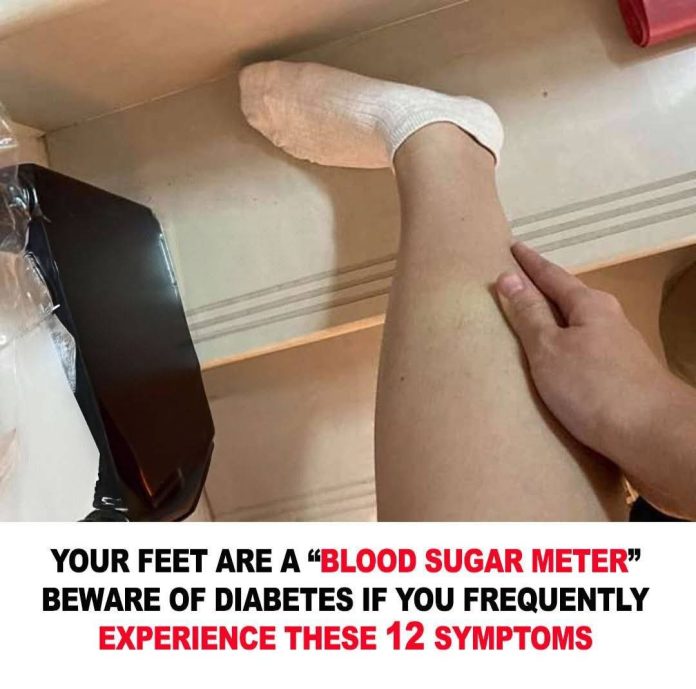Hypoglycemia, commonly known as low blood sugar, occurs when blood glucose levels drop below the normal range, typically less than 70 mg/dL (3.9 mmol/L). Glucose serves as the primary energy source for the body’s cells, especially the brain. When glucose levels fall too low, various symptoms can manifest, ranging from mild discomfort to severe medical emergencies. Understanding these signs is crucial for timely intervention and management.
1. Sweating
One of the early indicators of hypoglycemia is sudden, excessive sweating, regardless of ambient temperature or physical activity. This response results from the activation of the body’s sympathetic nervous system as it reacts to declining glucose levels. Individuals may notice dampness on their skin or clothing, often accompanied by a clammy sensation. Night sweats are also common, particularly in those with diabetes.
2. Irritability
A noticeable shift in mood, such as increased irritability or anxiety, can be a symptom of low blood sugar. As glucose levels decrease, the brain receives signals that can trigger the release of stress hormones like cortisol and adrenaline. These hormones can lead to feelings of agitation or unease, commonly referred to as being “hangry.”

3. Hunger
An intense sensation of hunger, even after recent food intake, may indicate hypoglycemia. The body’s cells, particularly in the brain, rely on glucose for energy. When levels drop, the brain signals the need for food to replenish glucose, leading to persistent hunger pangs. Consuming balanced meals with complex carbohydrates, proteins, and healthy fats can help stabilize blood sugar levels.
4. Nightmares
Low blood sugar during sleep, known as nocturnal hypoglycemia, can cause vivid dreams or nightmares. These unsettling dreams may disrupt sleep, leading to frequent awakenings. Individuals experiencing such symptoms should monitor their blood sugar levels and consult healthcare providers to adjust nighttime routines or medications accordingly.
5. Difficulty Concentrating
Cognitive functions, including concentration and decision-making, can be impaired when blood glucose levels are insufficient. The brain depends heavily on glucose, and a deficit can result in confusion, difficulty focusing, and memory lapses. This can affect daily activities and performance at work or school.
6. Dizziness
Feelings of lightheadedness or dizziness are common during hypoglycemic episodes. As glucose levels fall, the body’s nervous system responds, potentially causing sensations of unsteadiness or vertigo. Staying hydrated and consuming regular, balanced meals can help prevent these episodes.
7. Shakiness
Trembling or shakiness, particularly in the hands, can occur as the body’s muscles respond to low glucose availability. This involuntary movement results from the nervous system’s attempt to signal the need for energy replenishment. Consuming a quick source of glucose, such as fruit juice or glucose tablets, can alleviate this symptom promptly.
8. Fatigue
Persistent tiredness or fatigue, even after adequate rest, may be a sign of hypoglycemia. Without sufficient glucose, the body’s energy levels decline, leading to feelings of exhaustion. Incorporating complex carbohydrates and proteins into meals can provide sustained energy release, helping to combat fatigue.

9. Visual Disturbances
Blurred or double vision can occur when blood sugar levels drop significantly. The eyes and visual processing centers in the brain require glucose to function correctly. A deficiency can lead to visual impairments, which may resolve upon normalizing blood sugar levels.
10. Palpitations
An irregular or rapid heartbeat, known as palpitations, can be a physiological response to hypoglycemia. The release of adrenaline as a counter-regulatory hormone to low blood sugar can stimulate the heart, causing noticeable changes in heartbeat patterns. Monitoring blood sugar and managing stress can help mitigate this symptom.
11. Tingling Sensations
Experiencing tingling or numbness, particularly around the mouth, can be associated with low blood sugar levels. This symptom, known as paresthesia, arises from the nervous system’s sensitivity to glucose fluctuations. Ensuring regular food intake and monitoring blood sugar can help prevent these sensations.
12. Seizures
In severe cases, extremely low blood sugar can lead to seizures or convulsions. This occurs when the brain is deprived of adequate glucose for extended periods. Severe hypoglycemia is a medical emergency requiring immediate treatment to prevent long-term neurological damage.
Managing Hypoglycemia
Recognizing the signs of hypoglycemia is the first step in effective management. For individuals with diabetes, regular monitoring of blood glucose levels is essential. At the onset of symptoms, consuming fast-acting carbohydrates, such as glucose tablets, fruit juice, or regular soda, can quickly elevate blood sugar levels. It’s advisable to follow this with a snack or meal containing complex carbohydrates and protein to maintain stable glucose levels.
For those without diabetes experiencing hypoglycemic symptoms, it’s important to evaluate dietary habits, meal frequency, and overall health. Consulting with a healthcare provider can help identify underlying causes and develop a personalized plan to prevent future episodes.
In summary, hypoglycemia presents with a range of symptoms that can

















